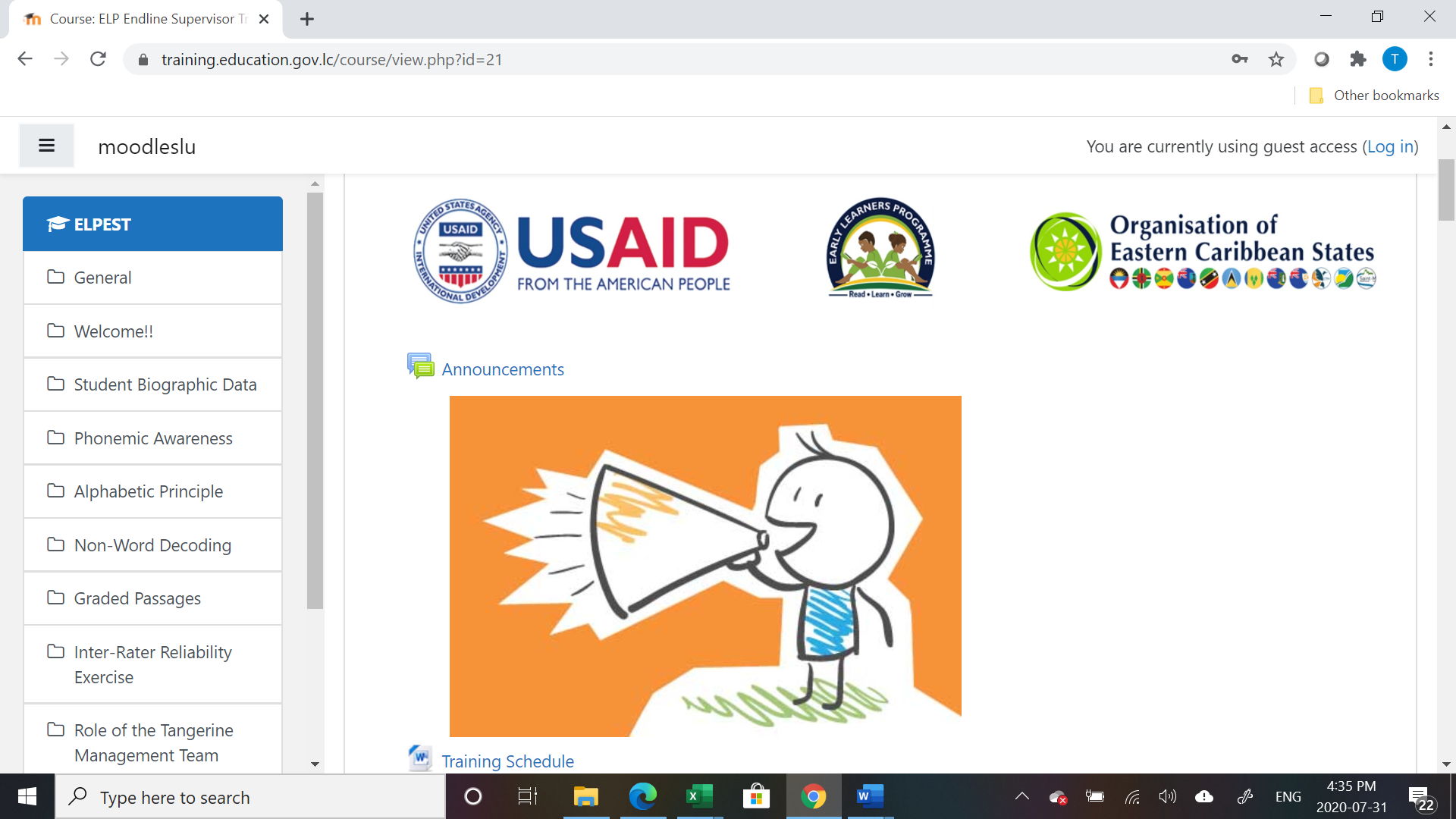Technology at the Forefront of Training to Assess OECS Early Grade Reading Levels
OECS/USAID Early Learners Program (ELP) Media Release
After five years of partnering to improve and develop effective early grade reading instruction in Antigua and Barbuda, Dominica, Grenada, Saint Lucia, St. Kitts and Nevis and Saint-Vincent and the Grenadines, the OECS/USAID Early Learners Programme (ELP) will close at the end of September 2020. The goal of the OECS/USAID ELP continues to be improving reading levels in the foundational years of Kindergarten through to Grade Three. To evaluate the effectiveness of the programme in improving reading levels across Member States (MS), the ELP developed an endline assessment that can be utilized by each MS far beyond the life of the ELP project and at intervals determined by each country.
The OECS/USAID ELP recently concluded training for conducting endline assessments for Early Grade Reading across the OECS MS. This training, originally planned as an intense face to face workshop, was transformed into a comprehensive, advanced online training 4-day workshop due to COVID-19 movement restrictions. Additionally, the ELP purchased one hundred and sixty (160) tablets to facilitate endline assessments in each OECS country - a critical resource for the training workshop.
Mr. Germain Anthony, Curriculum Specialist - Technology Integration from Saint Lucia’s Ministry of Education and training team lead highlighted how the workshop was executed:
We worked with two online platforms to ensure the successful delivery of the workshop. The Ministry of Education in Saint Lucia's Moodle Learning Management System was used to house the training content, making it accessible 24/7 and for years to come. In combination with Moodle, Zoom was also used to facilitate live webinars, providing a multi-platform interactive workshop that enabled presentations, discussion, and practice of concepts. Feedback from the attendees at the workshop was very positive, with indications that this modality was potentially as good as or better than a face-to-face interaction.
The recent training focused on the 18 test supervisors and in-country IT and assessment officers. These supervisors and support teams will then train their respective in-country teams to ensure effective execution of assessments and consistent data capture for accurate analysis and conclusions. Furthermore, the training supports knowledge transfer and establishes the online platform for the MS to continue conducting the early reading assessments to determine reading levels per MS requirements.
Speaking on the execution of virtual endline assessment training, ELP Reading Specialist Mrs. Lisa Terrance-Sargusingh stated:
“Transitioning this workshop to an online session was very innovative. Engaging the various coordinators and presenters created dynamic and interactive sessions. This reading assessment is critical in determining the success of the various initiatives implemented over the life of the ELP and further determining the results of efforts to improve reading levels. Coupled with the distribution of 160 tablets, this new endline assessment and training format enables greater sustainability and better opportunity for educators to analyse the impact of future reading initiatives.”
About OECS/USAID ELP:
OECS/USAID Early Learners Programme is a Programme within the Education Development Management Unit of the OECS Commission and was established in March 2015 to improve the reading skills of children in the early primary grades with the goal of providing a foundation for improved learning outcomes and enhanced opportunities for students in the six (6) independent Member States of the OECS (Antigua and Barbuda, The Commonwealth of Dominica, Grenada, Saint Lucia, St. Kitts and Nevis and St. Vincent and the Grenadines).
To date the ELP has achieved a number of tangible outputs with over 17,000 learners reached at the Primary level, over 1500 Grades K to 3 teachers supported through job embedded professional development, 1426 lessons observed and 1031 coaching sessions with teachers have been completed by ELP Coordinators. Further, 60 schools across the Member States have received development grants to support reading enhancement projects and 173,114 teaching and learning materials have been provided to 750 classrooms across the OECS. The OECS/USAID ELP will run through to September 2020 continuing to develop and implement impactful initiatives that advance early grade reading throughout the OECS.
.png)
.png)

